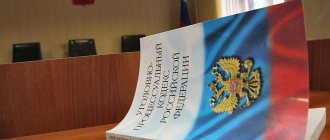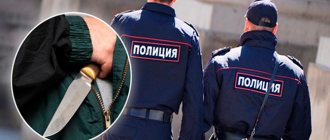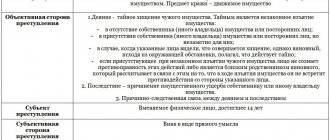New edition of Art. 163 of the Criminal Code of the Russian Federation
1. Extortion, that is, the demand for the transfer of someone else’s property or the right to property or the commission of other actions of a property nature under the threat of violence or destruction or damage to someone else’s property, as well as under the threat of dissemination of information disgracing the victim or his relatives, or other information that may cause significant harm to the rights or legitimate interests of the victim or his relatives, -
shall be punishable by restriction of freedom for a term of up to four years, or forced labor for a term of up to four years, with or without restriction of freedom for a term of up to two years, or by arrest for a term of up to six months, or by imprisonment for a term of up to four years with a fine of up to eighty thousand rubles or in the amount of wages or other income of the convicted person for a period of up to six months or without it.
2. Extortion committed:
a) by a group of persons by prior conspiracy;
b) has become invalid;
c) with the use of violence;
d) on a large scale, -
shall be punishable by imprisonment for a term of up to seven years with or without a fine in the amount of up to five hundred thousand rubles or in the amount of the wages or other income of the convicted person for a period of up to three years and with or without restriction of freedom for a term of up to two years.
3. Extortion committed:
a) an organized group;
b) for the purpose of obtaining property on a particularly large scale;
c) causing grievous harm to the victim’s health;
d) has become invalid, -
shall be punishable by imprisonment for a term of seven to fifteen years with or without a fine in the amount of up to one million rubles or in the amount of the wages or other income of the convicted person for a period of up to five years and with or without restriction of freedom for a term of up to two years.
What actions are considered extortion
This crime is regulated by Article 163 of the Criminal Code of the Russian Federation “Extortion”.
In accordance with it, extortion is a demand for the transfer of someone else's property or rights to it, containing a threat. Thus, in accordance with Article 163 of the Criminal Code, you can be punished for extortion of money, even if the demands were only voiced and the offender did not take any action. The main thing is that this demand is supported by a threat. The following can be used as a threat:
- threat to the life and health of the victim or his family members;
- threat of destruction or damage to the victim's personal property;
- threat of dissemination of information that discredits the name or business reputation of the victim;
- threat of dissemination of information that could cause harm to the victim or his relatives.
The subject of extortion can be both money and movable and immovable property. For example, housing, car, securities or jewelry.
The qualifying signs of extortion are:
- use of violence;
- extortion on a large scale;
- by prior conspiracy by a group of persons;
- causing serious harm to the health of the victim;
- on a particularly large scale;
- carried out by an organized group of persons.
It is worth noting that if a crime has signs of robbery or robbery, it is qualified under other articles of the Criminal Code of the Russian Federation. The difference between robbery and extortion is that robbery is causing damage with the aim of obtaining benefits at the time of the attack, while extortion is the threat and/or causing damage to the victim in order to obtain benefits in the future. The difference between robbery is that this crime involves the theft of property, and damage to the victim is not caused at all, or is caused, but in a mild form.
Please note that there is no separate article for extorting money from minors; the crime is classified under Article 163 of the Criminal Code of the Russian Federation.
Composition of criminal acts
In accordance with the comments to Article 163 of the Criminal Code of the Russian Federation, the elements of the crime of extortion are:
- the subjective side – direct intent and selfish purpose (selfish purpose is understood as the desire to extract unlawful property benefits for oneself or for a third party);
- subject - a person who is fully aware of his actions, over the age of 14 years;
- object – property relations;
- the objective side is the direct demands for the transfer of property without public disclosure.
Types and signs of extortion
Extortion is divided into:
- illegal demand for funds (this also includes extortion of a bribe by an official);
- requirement for transfer of property;
- extortion in order to relieve the criminal of debt obligations;
- requirement to transfer rights to property;
- extortion for the purpose of obtaining personal gain (for example, providing a service for free).
Commentary to Art. 163 of the Criminal Code of the Russian Federation
The main object of extortion is property relations in a broad, economic sense (property relations in the terminology of civil law). The danger of this crime, unlike theft, is not associated with the violation of any specific property right, but with causing property damage in an illegal way. Damage from extortion can be expressed not only in the loss of property, but also in other losses. An additional object may be personal integrity, human health, his honor and dignity.
The subject of extortion is optional. In the case of a demand for the transfer of someone else's property or the right to property, this property in extortion is understood more broadly than in theft. In case of extortion, property can be movable and immovable, and includes property rights, including those that are not real. When extorting the right to property, this property does not have to be someone else’s (for example, it is possible to extort the right to property that is in common ownership during its division). When extorting in relation to actions of a property nature, the subject is missing, which determines its optionality.
Extortion is not recognized as theft, since the signs of its composition are defined more broadly than the signs of theft. For example, a requirement to perform actions of a property nature cannot be recognized as theft due to the absence of the subject of theft.
The objective side of extortion consists of action (presentation of demands specified in the law) and methods of encroachment on other people’s property rights and interests characteristic of extortion (use of threats specified in the law).
Subject of the extortionist's demands:
1) transfer of property;
2) transfer of rights to property;
3) commission of other actions of a property nature.
The requirement to transfer property can be aimed not only at the alienation of this property, but also at transferring it for temporary use.
The transfer of rights to property in extortion is understood in the same way as in fraud.
Actions of a property nature can be actual (works, services) and legal (transactions). Transactions are usually aimed at transferring property or the right to it; however, other transactions are also possible, for example, forgiveness of a debt, waiver of a claim in a case for the collection of alimony, etc. The extortionist's demands can be aimed at committing any actions of a property nature.
Requirements can be presented both to the owner of the extorted property and to other persons, for example, to the head of the organization whose property is extorted by the perpetrator, to the person under whose protection this property is, etc. This person, by transferring someone else's property to the extortionist, thereby commits its theft. When qualifying the act, the criminal law significance of extreme necessity and coercion is taken into account (Article 40, paragraph “e”, Part 1, Article 61 of the Criminal Code of the Russian Federation).
Extortion methods:
1) threat of violence;
2) threat of destruction or damage to someone else’s property;
3) threat of dissemination of information disgracing the victim or his relatives, or other information that may cause significant harm to the rights or legitimate interests of the victim or his relatives.
The extortionist may threaten to use any violence, both dangerous and not dangerous to life or health. The extortionist may threaten to use violence against the person to whom he addresses his demands, as well as against any other person, including those who are not “relatives”. As a general rule, the qualification of extortion is not affected by the fact whether the extortionist intends to immediately carry out the threat or postpones its execution for the future. It is only important to take into account that the seizure of someone else's movable property during an attack committed with the threat of violence is not classified as extortion, but as robbery or robbery, depending on the nature of the violence that the attacker threatens to use.
It should be borne in mind that during robbery and assault, the threat of violence serves as a means of directly taking possession of property or to retain it. In extortion, the same actions are not associated with the direct seizure of property, but are aimed at subordinating the victim to the demands of the perpetrator so that the victim in the future will transfer the property to the perpetrator or perform the required actions of a property nature.
Extortion can also be combined with robbery or robbery, for example, if the culprit seizes some of the things during the attack, and demands to hand over some in the future, or, along with the seizure of things, demands to sign some document on the transfer of the right to property (clause 2 of the Resolution of the Plenum Supreme Court of the Russian Federation dated May 4, 1990 No. 3 “On judicial practice in cases of extortion”).
The threat of destruction or damage to property by force of law is decisive for extortion only if this property is someone else's. The concept of someone else's property is discussed in detail when characterizing the subject of theft.
The threat of dissemination of disgraceful information (blackmail) is understood as the threat of disclosure of such information that can discredit and cause significant harm to a person’s honor, dignity and business reputation. Other information may include, for example, the secrecy of adoption, cooperation with law enforcement agencies, etc.
This information must concern the person to whom the extortionist’s demand is addressed, or his relatives. “The relatives of the victim should be understood as close relatives... as well as other persons whose life, health and well-being, due to the prevailing life circumstances, are dear to the victim” (clause 13 of the Resolution of the Plenum of the Supreme Court of the Russian Federation of May 4, 1990 No. 3 “On judicial practice in cases of extortion").
A specific feature of blackmail is that a person can threaten not only illegal, but also lawful actions, for example, contacting a government agency or the media with a report of illegal actions. As a general rule, this does not exclude liability for extortion. But an exception must be made to this rule if the threat by lawful actions is associated with a demand aimed at protecting the violated right.
Thus, a person’s demand to compensate for property damage and moral harm caused to him, coupled with a threat to disseminate information about the fact of harm caused to him, cannot be considered as extortion. This is a legal action to protect a violated right. In the situation considered, there is a confluence of: 1) a legitimate requirement; 2) threats with lawful actions. If the demand is obviously unlawful, for example, the fact of causing damage did not occur or was deliberately provoked for the purpose of fraud or extortion, the act committed in the presence of threats characteristic of extortion should be qualified as extortion. Just as theft develops into robbery and robbery, so fraud can develop into extortion, robbery or robbery, which often occurs in so-called auto-frauds, when fraudsters who have failed to deceive the victim resort to threats.
If the demand is lawful (taking into account a possible subjective error), but the person threatens with unlawful actions, the act does not constitute extortion due to the established understanding of a selfish goal. But it is not a lawful action; liability for arbitrariness is possible.
The elements of extortion are formulated as formal; for a completed crime, it is enough only to put forward a demand for the transfer of someone else’s property or the right to property, coupled with the threat characteristic of extortion. This is a truncated composition. Essentially, extortion is the unlawful acquisition of property benefits for oneself or for another person for mercenary purposes, committed by forcing the victim by threats to dispose of property in favor of the extortionist, causing property damage. This must be the intent of the extortionist. Threats should be understood as ways of extracting profit. The moment of the end of the crime is brought to the stage of the attempt.
The subjective side of extortion is characterized by guilt in the form of direct intent and selfish purpose (although the latter is not directly indicated in the law). When committing extortion, a person is aware of the social danger of his actions and wants to commit them.
The selfish goal of extortion is the goal of extracting an unlawful property (i.e., valued in money) benefit for oneself or for another person.
The general subject of extortion is a sane person who has reached the age of fourteen years.
Qualifying signs of extortion: a group of persons by prior conspiracy, use of violence, large scale (Part 2 of Article 163 of the Criminal Code of the Russian Federation), especially large scale, organized group, causing grievous harm to the health of the victim (Part 3 of Article 163 of the Criminal Code of the Russian Federation). These signs are understood similarly to the qualifying signs of robbery.
Clause “c” of Part 2 of Art. 163 of the Criminal Code of the Russian Federation covers violence, both dangerous and not dangerous to life and health, with the exception of serious harm to health and causing death. If violence during extortion is expressed in unlawful deprivation of liberty (in the absence of signs of kidnapping), the act is fully covered by paragraph “c” of Part 2 of Art. 163 of the Criminal Code of the Russian Federation and does not require additional qualifications under Art. 127 of the Criminal Code of the Russian Federation.
Illegal entry into a home Art. 163 of the Criminal Code of the Russian Federation is not covered and requires additional qualifications under Art. 139 of the Criminal Code of the Russian Federation.
“When deciding the issue of distinguishing robbery and robbery from extortion combined with violence, the courts should take into account that if in robbery and robbery violence is a means of seizing property or retaining it, then in extortion it reinforces the threat. Seizure of property during robbery and assault occurs simultaneously with the commission of violent acts or immediately after their commission, while in extortion the intent of the perpetrator is aimed at obtaining the required property in the future" (clause 2 of the Resolution of the Plenum of the Supreme Court of the Russian Federation dated May 4, 1990 No. 3 " On judicial practice in cases of extortion"). In addition, the rule on extortion is applied in the absence of signs of robbery and robbery, for example, when the extortionist demands to transfer the right to real estate to him, to issue any document that does not form the subject of theft (for example, to return a promissory note), etc.
What to do if you extort money and threaten
Firstly, if you are extorted for money or other property, you should not panic, much less comply with the criminal’s demands. Secondly, you need to collect all available evidence and write a statement to the police. You must contact the department of the Ministry of Internal Affairs at your place of residence.
The application must contain the following information:
- FULL NAME. and the position of head of the department;
- information about the applicant (full name, residential address, contact information);
- details of the extortionist (if available, if not, the statement indicates that the extortionist is an unknown person);
- a detailed description of how the extortion of money or other property occurred.
You can view a sample statement to the police about extortion of money (any other property) by clicking on the link.
All available evidence must also be attached to the application. We will tell you later in the article how to prove the fact of extortion.
Punishment under the Criminal Code of the Russian Federation
Punishment for extortion is established by Article 163 of the Criminal Code of the Russian Federation. In accordance with it, extortion of money and threats is punishable by one of the following measures, depending on the court decision:
- restriction of freedom for up to 4 years;
- forced labor for up to 4 years with or without restriction of freedom for up to 2 years;
- arrest for up to 6 months;
- imprisonment for a term of up to 4 years with a fine of up to 80 thousand rubles or in the amount of the income of the convicted person for a period of up to 6 months or without a fine.
If the crime was committed with aggravating circumstances, namely:
- extortion by a group of persons by prior conspiracy;
- demand for funds and property in large quantities;
- extortion with violence.
In this case, in accordance with Part 2 of Article 163, extortion of money or any other property is punishable by imprisonment for a term of up to 7 years with a fine of up to 500,000 rubles or in the amount of the income of the convicted person for a period of up to 3 years or without a fine and with restriction of freedom for a period of up to 2 years or no.
Extortion by an organized group of persons, either causing grievous harm to the health of the victim, or extortion on a particularly large scale in accordance with Part 3 of Article 163 of the Criminal Code of the Russian Federation is punishable by imprisonment for a term of 7 to 15 years. Also, the convicted person may be given a fine of up to 1 million rubles or in the amount of income for a period of up to 5 years and restriction of freedom for up to 2 years.
Please note that the age of criminal responsibility for extortion is 14 years.
Verdict Art. 163 part 2, 162 part 2 of the Criminal Code of the Russian Federation
Our phone number is +7-905-5555-200
P R I G O V O R in the name of the Russian Federation <address> August 31, 2011. Gagarinsky District Court <address> composed of the presiding judge Motorin A.V., alone, with the participation of the senior assistant of the Gagarin interdistrict prosecutor <address> Kharbediya A.R., defendants - , , , legal representatives , , , defenders - teacher Klimanova L.V., the victim, with the secretary Tarbaeva I.A., having examined in open court the materials of the criminal case against a minor, born on April 2, 1995, a native of <address>, a citizen of the Russian Federation, with incomplete secondary education, in unmarried, not officially employed, student <data taken>, permanently registered at the address: <address>, no previous convictions, minor, DD.MM.YYYY year of birth, native of <address>, citizen of the Russian Federation, having incomplete secondary education, unmarried, not officially employed, student <data taken>, permanently registered at the address: <address>, no previous convictions, minor, DD.MM.YYYY year of birth, native of <address>, a citizen of the Russian Federation with an incomplete secondary education, unmarried, not officially employed, a student <data taken>, permanently registered at the address: <address>, not previously convicted, anyone accused of committing crimes under Art. .162 part 2, 163 part 2 pp. “a”, “c” of the Criminal Code of the Russian Federation, - U S T A N O V I L : Lobachev D.G., Kovtun D.E. and Zdorovets M.V., each guilty of committing robbery, that is, an attack for the purpose of stealing someone else’s property, committed with the threat of violence dangerous to life and health, by a group of persons by prior conspiracy, using an object used as a weapon. The crime was committed under the following circumstances: On-Lobachev D.G., having a criminal intent aimed at committing a robbery, at a time and place unknown to the investigation, under circumstances unknown to the investigation, entered into a relationship with previously known Zdorovets M.V. and Kovtun D.E. into a criminal conspiracy aimed at committing robbery, after which, according to the distribution of roles, he-Lobachev D.G., hiding his true intentions, called and asked him to come to a meeting on April 12, 2011 at the metro station <address> in < address>, the place and time of which he informed his accomplices Kovtun D.E. and Zdorovets M.V., after which, at approximately 20.00 hours on April 12, 2011, a more precise time has not been established by the investigation, he-Lobachev D.G. being near the exit from the southern lobby of the metro station <address> to <address>, I met with, and then together with Zdorovets M.V. and Kovtun D.E. proceeded to the 2nd entrance <address> <address> <address>, climbed the flight of stairs between the second and third floors, where, in continuation of the criminal intent, at approximately 20:35 he-Lobachev D.G. demanded that D.G. hand it over to him-Lobachev. and his accomplices and Zdorovets their mobile phone of the LG Optimus LG540 brand with a built-in 2 GB flash card and Philips headphones, worth a total of 9,000 rubles. At this time, Kovtun D.E. took out a knife, which, according to expert conclusion No. dated April 26, 2011, was manufactured industrially, belongs to knives for household purposes and is not a bladed weapon and handed it over to him, D.G. Lobachev, who demonstrated the said knife and used it as a weapon , began to threaten the use of violence dangerous to life and health. Kovtun D.E. and Zdorovets M.V. also spoke out regarding the threat of violence dangerous to life and health, supporting the demands of him-Lobachev D.G. about handing over the phone to them. Having suppressed the will to resist, Kovtun D.E. took the knife into his own hands, and Zdorovets M.V. stole the above-mentioned mobile phone belonging to , thereby causing him material damage totaling 9,000 rubles. Lobachev D.G., Kovtun D.E. and Zdorovets M.V., each guilty of committing extortion, that is, demanding the transfer of someone else’s property, under the threat of violence, committed by a group of persons by prior conspiracy, with the use of violence. The crime was committed under the following circumstances: On-Lobachev D.G. having a criminal intent aimed at committing extortion, that is, actions aimed at demanding the transfer of someone else’s property under the threat of violence, at a time and place unknown to the investigation, under circumstances unknown to the investigation, entered into relations with previously acquainted Zdorovets M.V. and Kovtun D.E. into a criminal conspiracy aimed at committing extortion, after which, according to the distribution of roles, on April 12, 2011, at approximately 20:40, while being with his accomplices on a flight of stairs between the 2nd and 3rd floors <address> <address>, after committing in relation to a robbery attack, during which he-Lobachev, together with accomplices Zdorovets M.V. and Kovtun D.E. took possession of a mobile phone, did not stop his criminal actions and, in order to carry out a single criminal intent aimed at extortion, realizing the illegality of his actions, Kovtun D.E., holding a knife in his hands, demanded the gratuitous transfer of funds to him and his accomplices in the amount of 50 000 rubles, while establishing a two-week period during which the above-mentioned amount must be transferred, and also set the condition that in the event of refusal to comply with the requirements for the transfer of funds, as well as in the event of a message to the police officers, Kovtun D’s accomplices .E, Zdorovets M.V. and from him-Lobachev D.G. the parties will use violence, after which, in continuation of the criminal intent, he-Lobachev D.G. together with Zdorovets, they were taken to the first floor of the above-mentioned entrance, where, in order to demonstrate the seriousness of the criminal intentions and previously made demands, he-Lobachev D.G., taking from Kovtun D.E. the knife indicated above, began to express threats to use this knife, after which Kovtun D.E. and Zdorovets M.V. began to kick and punch the face and torso, causing, according to forensic medical examination No. dated May 27, 2011, bodily injury in the form of an abrasion of the right temporal region, which was not regarded as harm to health, did not entail health problems, causing physical pain and moral suffering. Next Kovtun D.E. repeated the demand put forward for the gratuitous transfer of funds in the amount of 50,000 rubles to him and his accomplices within two weeks, to which, fearing their criminal actions, he agreed. Then he-Lobachev D.G., together with Kovtun D.E. and Zdorovets M.V. fled from the scene of the crime. Defendant D.G. Lobachev interrogated at the court hearing. guilty of committing the crimes specified in the descriptive part, provided for in Art. 162 part 2, 163 part 2 pp. “a”, “c” of the Criminal Code of the Russian Federation was fully recognized and showed that in March 2011 he met and maintained friendly relations with him. April 02, 2011 he-Lobachev D.G. together with Kovtun D.E. and Zdorovets M.V. celebrated his birthday, during which he went home. This behavior to him-Lobachev D.G. didn’t like it, and therefore he-Lobachev, together with Zdorovets, decided to teach a lesson on April 12, 2011, in the evening, he-Lobachev D.G. Together with Zdorovets, we met at the metro station <address> <address>, after which we proceeded to the entrance of a nearby building, where we climbed a flight of stairs between the 2nd and 3rd floors. On-Lobachev D.G. He told me to take out my mobile phone, turn it off and put it on the windowsill. Further he-Lobachev D.G. took from Kovtun D.E. knife and holding it in his hands, began to verbally threaten. At the same time, Kovtun D.E. said that he must give them money in the amount of 50,000 rubles within two weeks for his behavior. Zdorovets M.V. and he-Lobachev D.G. supported by Kovtun D.E. in the specified requirement. Zdorovets M.V. He took his mobile phone with headphones from the windowsill and put it in his pocket. Having gone down to the first floor, he-Lobachev D.G. sat down on the nightstand, while continuing to hold the knife in his hands, and Zdorovets M.V. and Kovtun D.E. They began throwing punches and kicks to the head and torso. At the same time, he repeated the demand for the transfer of funds in the amount of 50,000 rubles. Then he-Lobachev D.G. Together with Zdorovets, we proceeded to the metro station <address> and went home. The next day, April 13, 2011, he-Lobachev D.G. phoned D.E. Kovtun. and Zdorovets M.V., from whom I learned that they sold the mobile phone stolen from them to <address>. The defendant Kovtun D.E., interrogated at the court hearing. guilty of committing the crimes specified in the descriptive part, provided for in Art. 162 part 2, 163 part 2 pp. “a”, “c” of the Criminal Code of the Russian Federation was fully recognized and showed that at the beginning of April 2011 he, together with Zdorovets M.V. and Lobachev D.G. celebrated the latter's birthday. At the same time, having attended the birthday party of Lobachev D.G. for a short time, he left for Lobachev D.G. did not like. Discussing the behavior, he-Kovtun D.E., Zdorovets and Lobachev subsequently decided to sort it out on April 12, 2011, in the evening, he-Kovtun D.E. met with Lobachev, Zdorovets and at the metro station <address> <address>. Then the four of them proceeded to the entrance of a nearby house, where they climbed to the landing between the 2nd and 3rd floors. Lobachev D.G. demanded that he take out his mobile phone and put it on the windowsill, which he did. Then, Lobachev D.G. took from him - Kovtun D.E. knife and began making verbal threats to scare him. Then Lobachev returned the knife to him, after which he, demonstrating the knife, demanded that he give them (Kovtun D.E., Lobachev D.G. and Zdorovets M.V.) money in the amount of 50,000 rubles within two weeks. These requirements Zdorovets M.V. and Lobachev D.G. supported. Zdorovets M.V. He took his mobile phone with headphones from the windowsill and put it in his pocket. Having gone down to the first floor, Lobachev D.G. sat down on the bedside table, which stood in the indicated entrance, and again took D.E. Kovtun from him. knife and continued to make verbal threats, and he-Kovtun D.E. struck with his right foot in the thigh area and with his left hand on the back of the head. Zdorovets M.V. also struck him in the face and torso area with his hand, while they repeated their demands for money to be transferred to them. After that, he and Zdorovets M.V., Lobachev D.G. and headed towards the metro station <address> where they forced them to repeat their demands. He repeated that he had to give them 50,000 rubles within two weeks, after which they went home. He understood that, being a student, he would not be able to give them the required amount of money, but in this way he wanted to teach them a lesson for his behavior. April 13, 2011 he-Kovtun D.E. together with Zdorovets M.V. sold a stolen mobile phone with headphones to an unknown man at <address> for 1,800 rubles, dividing the proceeds among themselves and spending them on their own needs. The defendant Zdorovets M.V., interrogated at the court hearing. guilty of committing the crimes specified in the descriptive part, provided for in Art. 162 part 2, 163 part 2 pp. “a”, “c” of the Criminal Code of the Russian Federation was fully recognized and showed that on April 2, 2011, he, together with Lobachev and Kovtun D.E. celebrated Lobachev's birthday. At the same time, having spent a short time at his birthday party, he left to tell D.G. Lobachev. did not like. Discussing behavior, he- Zdorovets, Kovtun D.E. and Lobachev subsequently decided to sort things out on April 12, 2011, in the evening he-Zdorovets met with Lobachev and at the metro station <address>. Then the four of them proceeded to the entrance of a nearby house, where they climbed to the landing between the 2nd and 3rd floors. Lobachev demanded that he take out his mobile phone and put it on the windowsill, which he did. Then, Lobachev D.G. took from Kovtun D.E. knife and began to show it to scare him. At this moment he is Zdorovets M.V. He took his mobile phone with headphones from the windowsill and put it in his pocket. At the same time, he is Zdorovets and agreed that they would subsequently sell this phone. Then Lobachev returned the knife and he, showing the knife, demanded that he give them (D.E. Kovtun, D.G. Lobachev and M.V. Zdorovets) money in the amount of 50,000 rubles within two weeks. These requirements are on-Zdorovets M.V. and Lobachev D.G. supported. reported that he did not have that amount of money, then they proceeded from to the first floor, where Lobachev D.G. sat down on the nightstand and took D.E. from Kovtun. knife, began to make verbal threats, and Kovtun D.E. struck with his right foot in the thigh area and with his left hand on the back of the head. He-Zdorovets M.V. also struck him in the face and torso area with his hand, while they repeated their demands for money to be transferred to them. After that he - Zdorovets M.V., with Lobachev D.G. and headed towards the metro station <address>, where they forced them to repeat their demands. He repeated that he had to give them 50,000 rubles within two weeks, after which they went home. On April 13, 2011, he and Zdorovets sold a stolen mobile phone with headphones to an unknown man at <address> for 1,800 rubles, dividing the proceeds among themselves and spending them on their own needs. Guilt of the defendants Lobachev D.G., Kovtun D.E., Zdorovets M.V. in committing the crimes incriminated in them as specified in the narrative, is confirmed by the body of sufficient evidence examined at the court hearing, presented by the prosecution. The victim, who was interrogated at the court hearing, testified that he had previously supported D.G. with Lobachev. companionship. There were never any debt obligations between him and Lobachev. At the beginning of April 2011, Lobachev D.G. invited him to his birthday. On April 2, 2011, he and his girlfriend arrived at Lobachev’s birthday, where he met previously unknown people and Zdorovets. There were never any debt obligations between him and Zdorovets. Having stayed at the birthday party for a short time, he informed D.G. Lobachev. that he and his girlfriend are leaving home because they are tired. On April 12, 2011, at approximately 20.00, he arrived at the metro station <address> <address>, where he met with Lobachev, Zdorovets and. The four of them proceeded to <address> <address>, where they climbed the flight of stairs between the 3rd and 2nd floors. Lobachev D.G. demanded that he take out his mobile phone, turn it off and put it on the windowsill, which he did. Then Lobachev D.G. took from Kovtun D.E. knife and began to verbally threaten him. Then Kovtun D.E. took the knife from Lobachev and, threatening him with this knife, demanded that he give them 50,000 rubles. Zdorovets M.V. took from the window sill his LG Optimus GT540 mobile phone, along with the included 2GB flash card and Philips headphones, worth a total of 9,000 rubles, and put them in his inner pocket of the jacket he was wearing. Further, being on the first floor of the specified entrance, Lobachev D.G. sat on the nightstand with a knife in his hands and began making verbal threats against him. Kovtun D.E. and Zdorovets M.V. They began to punch and kick him on the head and torso, repeating demands for the transfer of funds in the amount of 50,000 rubles. After that, Lobachev and Zdorovets followed him to the metro station <address> where they forced him to repeat their demands for the transfer of money, after which they left. He sought medical help at clinic No. <address>, and then reported the illegal actions of Lobachev and Zdorovets to the police. Announced at the court hearing, at the request of the prosecution, in accordance with Article 281 Part 1 of the Code of Criminal Procedure of the Russian Federation, with the consent of the parties, the testimony of a witness given during the pre-trial investigation, from which it follows that on April 13, 2011 from the clinic No. <address> The police department at <address> received a telephone message No. from which it followed that on April 13, 2011 at 19:35 he came to the specified clinic with a diagnosis of a fracture of the lower jaw and a contusion of the temporal region on the right. In the process of checking the information received and carrying out operational search activities, he found that he had been beaten by acquaintances who, threatening him with a knife, openly stole his mobile phone with headphones and expressed demands for the transfer of funds in the amount of 50,000 rubles to them. On suspicion of committing crimes against, Lobachev D.G., Kovtun D.E. were detained. and Zdorovets M.V. During the personal search, a knife was confiscated from him, about which a corresponding document was drawn up. Kovtun D.E. and Zdorovets M.V. admitted to what they committed together with D.G. Lobachev. crime against and showed the place where on April 13, 2011 they sold the stolen LG Optimus GT540 mobile phone with a built-in flash card and Philips headphones. Having followed the indicated Kovtun D.E. and Zdorovets M.V. address, they identified a citizen who confirmed that he had purchased the above-mentioned mobile phone from Zdorovets for 1,800 rubles. At the same time, in the presence of witnesses, he voluntarily handed over the specified mobile phone with a flash card and headphones, about which a corresponding document was drawn up. (vol. 1 case file 161-163) Announced at the court hearing, at the request of the prosecution, in accordance with Article 281 Part 1 of the Code of Criminal Procedure of the Russian Federation, with the consent of the parties, by the testimony of a witness given during the pre-trial investigation, in which he confirmed circumstances of the detention and Zdorovets, explaining that during the personal search, a knife was confiscated from him, about which a corresponding document was drawn up. Kovtun D.E. and Zdorovets M.V. admitted in the disastrous with Lobachev D.G. The crime in relation to and showed a place where they sold on April 13, 2011 they sold the stolen phone of the El Je Optimus GT540 brand with a built-in flash card and Filips headphones. Having followed the specified Kovtun D.E. and Zdororovets M.V. The address, Im-Kaverin, was established a citizen who confirmed that he had acquired the above mobile phone for 1.800 rubles. At the same time, in the presence of witnesses, he voluntarily issued the specified mobile phone with a flash card and headphones, about which the corresponding document was drawn up. (t.1 ld. 158-160) announced at the hearing, at the request of the prosecution, in accordance with Article 281 of Part 1 of the Code of Criminal Procedure of the Russian Federation, with the consent of the parties, the testimony of the witness given during the pre-trial investigation, of which it follows that on April 13, 2011 he was near the store < Data seized>, located in <Adress>, when previously unknown healthcoves M.V. and Kovtun D.E. And they offered to purchase from them a mobile phone of the El Je optimus brand, explaining that this phone belongs to their relative. He- examined the specified phone and purchased it at and Zdorz for 1.800 rubles. On April 15, 2011, he was in the same place where he acquired from Zdorts M.V. and Kovtuna D.E. The phone, when the police officers with whom the Zdorovets and. He- confirmed police officers that he acquired from Zdorts M.V. and Kovtuna D.E. The mobile phone, after which, in the presence of witnesses, voluntarily issued this phone to the police, which was drawn up about the corresponding protocol, which all presented persons signed. (T.1 ld 164-165) In addition, the guilt of the defendants Lobachev D.G., Kovtuna D.E., Zdororovets M.V. The commission of the crimes indicated in the descriptive part of the crimes incriminated by him, is confirmed by the case of the case investigated at the hearing: - the application registered in the unified book of accounting for messages about the crimes of the Department of Internal Affairs for "Adre> for No. 04/14/2011, its appeal to law enforcement agencies is confirmed On the fact of the robbery committed against him on 04/12/2011 at the entrance No. <adre> <Adre> <Adress>. (vol. 1 ld 6) - the protocol dated 04/15/2011, according to which a personal search of Kovtun D.E. was carried out, during which he was removed by a knife, which was examined by the protocol dated 04.21.2011, identified on 04/26/2011 years as a knife that the defendants threatened him, and this knife is recognized as material evidence in the criminal case. (T.1 ld 30; 128-129; 147-149; 153-154)-the protocol dated 04/15/2011, according to which he voluntarily issued the mobile phone of the El Jele Optimus brand with a flash card for 2 GB and The Filips headset, which was examined by the protocol dated 04.21.2011, was identified by the victims on 04/26/2011 as property stolen by defendants in the process of robbery and the indicated property is recognized as material evidence in the case. (T.1 ld 32, 130-131; 150-154)-the conclusion of expert No. dated 04/26/2011, according to which a knife seized during a personal search on 04/15/2011 near D. Kovtun It is made in an industrial way, refers to household approval knives and is not a cold weapon. (t.1 ld 97-99)-the conclusion of expert No. dated 05/27/2011, according to which bodily harm in the form of an abrasion of the right temporal region was not life-threatening, did not entail health disorders and on this basis not It is regarded as harm to health, and the diagnosis of “closed fracture of the lower jaw on the right” is not confirmed by the results of an objective radiographic examination and is not subject to a forensic assessment. (t.1 ld 1 109-118) The court studied the evidence presented by the side of protection. The legal representative questioned at the hearing showed that she is the mother of Kovtun D.E. An eyewitness committed by Kovtun D.E. She was not crimes and testified regarding the characteristics of the personality of her son, characterizing him exclusively from the positive side. The legal representative questioned at the hearing showed that she is M.V. Zdoritz's mother An eyewitness committed by Healthy M.V. She was not crimes and testified regarding the characteristics of the personality of her son, characterizing him exclusively from the positive side. The legal representative questioned at the hearing showed that she is the mother of Lobacheva D.G. An eyewitness committed by Lobachev D.G. She was not crimes and testified regarding the characteristics of the personality of her son, characterizing him exclusively from the positive side. Assessing the evidence invested at the hearing, the court finds that they are consistent with each other, complement each other, and therefore does not doubt their reliability. The court has no reason not to trust the consistent testimony of the victim, given to the court, as well as the testimony of witnesses announced at the hearing, and the data during the pre -trial investigation and the court did not establish circumstances indicating the possibility of a reservation by the named persons of the defendants Lobachev D.G., Kovtun D.E. and Zdoritsa M.V. The court finds no reason not to trust the testimony of legal representatives, and who were not evidently committed by defendants and gave evidence regarding the personality of Lobachev D.G., Kovtun D.E. and Zdoritsa M.V. The court does not find grounds not to trust the testimony of the defendants Lobachev D.G., Kovtuna D.E. and Zdoritsa M.V., who fully pleaded guilt in committing the crimes that he indicated in the descriptive part, since such indications are fully consistent with other evidence investigated by the court. The preliminary investigation authority to Lobachev D.G. Under Article 163 of Part 2, P.P. “A”, “c” of the Criminal Code of the Russian Federation, actions to hold the victim’s neck by holding the neck are injected, at the moment when the healthy man was struck. At the hearing the victim, as well as the defendants Lobachev D.G., Kovtun D.E. and Zdororovets M.V. Such the above actions of Lobachev did not confirm in relation to, in connection with which the court excludes Lobachev from the prosecution under Article 163 of Part 2 of P.P. “A”, “B” of the Criminal Code of the Russian Federation, actions to hold the victim with his hands by the neck, at the moment when the hedogs were struck. Based on the foregoing, the court considers the guilt of the defendants Lobachev D.G., Kovtuna D.E. and Zdoritsa M.V., everyone, in the commission of the crimes under Article 162 Part 2, 163 part 2 of paragraphs “A”, “c” of the Criminal Code of the Russian Federation fully proved, and qualifies their actions under Art. 162 Part 2 of the Criminal Code of the Russian Federation (as amended by Federal Law No. 26-ФЗ dated 03.03.2011)-as a robbery, that is, an attack in order to steal someone else's property, committed with the threat of violence that is life-threatening and a group of persons by preliminary conspiracy, using an object used as a weapon and under Article 163 of part 2 of paragraphs “A”, “c” of the Criminal Code of the Russian Federation (as amended by Federal Law No. 26-FZ dated 03.03.2011)-as extortion, that is, the requirement of transferring other people's property, under the threat of violence committed by a group of persons by prior conspiracy, using violence, using violence . The representative of the state prosecution pointed out the need to qualify the actions of each of the defendants of the above court, supporting the prosecution in this volume. The side of protection believed that the fault of the defendants Lobachev D.G., Kovtun D.E. and Zdoritsa M.V., in committing crimes incriminated by him, was fully proved, considering it possible to appoint a punishment that is not related to real deprivation of liberty. Purchasing the defendants to Lobachev D.G., Kovtun D.E. and the health of M.V., the court takes into account the nature and degree of public danger of the deeds, the living conditions and education of each of the defendants, the level of their mental development, the influence of the senior people on the age of them, the fact of the commission of each of the defendant crimes at a minor age, as well as the identities of the defendants, each of whom is studying in educational institutions, at the place of residence and study is characterized positively, we are not convicted earlier .. (t .E. and Zdoritsa M.V., the court, on the basis of Article 61 of Part 1, “B” of the Criminal Code of the Russian Federation, relates their minority at the time of the commission of crimes, and also takes into account the recognition of guilt and repentance in the deed. Circumstances aggravating the punishment of the defendants Lobachev D.G., Kovtun D.E. and Zdoritsa M.V., provided for by Article 63 of the Criminal Code of the Russian Federation, the court did not establish the court. When sentencing the defendants to Lobachev D.G., Kovtun D.E. and Zdortsa M.V. The court takes into account the circumstances of the crimes committed, each of which belongs to the category of serious ones, the role of each of the defendants in the commission of crimes he has incriminated, the minor age of each of the defendants, in connection with which he appoints them, taking into account the provisions of Article 88 of part 6.1 of the Criminal Code of the Russian Federation. Defendants Lobachev D.G., Kovtun D.E. and healthcous M.V. Two crimes in a row have been committed, and therefore the court shall impose a punishment to each of the defendants, taking into account the provisions of Article 69 of Part 3 of the Criminal Code of the Russian Federation. Given the foregoing, the court believes that the correction and re -education of each of the defendants is possible without real imprisonment, and therefore appoints D.K. Lobachev, Kovtun D.E. and Zdortsa M.V. Punishment using the provisions of Article 73 of the Criminal Code. Given the financial situation of the defendants Lobachev D.G., Kovtuna D.E. and Zdovtsa M.V., as well as the material situation of their families, the court does not find grounds for the defendants to appoint an additional type of punishment in the form of a fine provided for by the sanctions of Article 162 part 2, 163 part 2 of paragraphs "A", "B" of the Criminal Code of the Russian Federation. In addition, the court does not find grounds for appointing the defendants to Lobachev D.G., Kovtun D.E. and Zdoritsa M.V., to everyone, an additional type of punishment provided for by the sanctions of Article 162 Part 2, 163 Part 2, P.p. “A”, “c” of the Criminal Code of the Russian Federation in the form of restriction of freedom. Based on the foregoing, guided by Article 307-309 of the Code of Criminal Procedure of the Russian Federation, the court sentenced: to admit guilty of committing crimes under Article 162 Part 2, 163 Part 2 P.p. “A”, “c” of the Criminal Code of the Russian Federation and sentenced: - under Art. 162 Part 2 of the Criminal Code of the Russian Federation in the form of imprisonment for a period of 2 (two) years; - under Article 163 of Part 2, P.p. “A”, “c” of the Criminal Code of the Russian Federation in the form of imprisonment for a period of 2 (two) years. Based on Article 69 of Part 3 of the Criminal Code of the Russian Federation, according to the aggregate of committed crimes, by partial addition of the sentenced punishments, to finally impose a sentence of imprisonment for a period of 3 (three) years to serve. Recognize guilty of committing crimes under Article 162 Part 2, 163 Part 2 P.p. “A”, “c” of the Criminal Code of the Russian Federation and sentenced: - under Art. 162 Part 2 of the Criminal Code of the Russian Federation in the form of imprisonment for a period of 2 (two) years; - under Article 163 of Part 2, P.p. “A”, “c” of the Criminal Code of the Russian Federation in the form of imprisonment for a period of 2 (two) years. Based on Article 69 of Part 3 of the Criminal Code of the Russian Federation, according to the aggregate of committed crimes, by partial addition of the sentenced punishments, to finally impose a sentence of imprisonment for a period of 3 (three) years to serve. Recognize guilty of committing crimes under Article 162 Part 2, 163 Part 2 P.p. “A”, “c” of the Criminal Code of the Russian Federation and sentenced: - under Art. 162 Part 2 of the Criminal Code of the Russian Federation in the form of imprisonment for a period of 2 (two) years; - under Article 163 of Part 2, P.p. “A”, “c” of the Criminal Code of the Russian Federation in the form of imprisonment for a period of 2 (two) years. Based on Article 69 of Part 3 of the Criminal Code of the Russian Federation, according to the aggregate of committed crimes, by partial addition of the sentenced punishments, to finally impose a sentence of imprisonment for a period of 3 (three) years to serve. On the basis of Article 73 of the Criminal Code of the Russian Federation, D.K. Kovtuna, to Lobachev, is appointed to the Kovtuna, Zdoritsa M.V. Registration to be considered conditional with a trial period of 2 (two) years. To oblige Lobacheva D.G., Kovtuna D.E. and Zdoritsa M.V. Do not leave a permanent place of residence without notifying a specialized state body that corrects convicts, where to appear for registration at least 1 time per month, not to appear on the street after 22.00 hours without the accompanying parents until adulthood is reached. The measure of restraint to Lobachev D.G., Kovtun D.E., Zdovtsa M.V., to everyone, leave in the form of a subscription about the loss of leave and proper behavior before the court sentence enters into legal force. Substantial evidence: a knife seized during a personal search near Kovtun D.E., located in the storage chamber of material evidence of the ATS for <Adre> - destroy; The mobile phone of the El Je optimus LG540 with a built-in flash card on 2 GB and the Filips headphones, voluntarily issued- leave according to the victim’s affiliation, the procedural documents are stored in criminal case No.. (t day to present a copy of the sentence. If a cassation appeal is filed, the convicted person has the right to petition for his participation in the consideration of the criminal case by the court of cassation. Judge
How to prove extortion of money
To be prosecuted for blackmail and extortion, it is necessary to provide the police with evidence of a crime. As evidence of extortion of money, you can provide an audio recording of a telephone conversation if threats and demands were received over the phone. If the fraud occurred in person, you can provide a video or voice recorder.
Please note that all video and audio recordings provided to the police will not be used as evidence in the case. According to the law, the decision on audio and video recording must be made by employees of the Ministry of Internal Affairs. This evidence will only be needed to prove extortion to initiate a criminal case.
Also, if there were eyewitnesses to the incident, it is worth indicating their contacts in the statement. They will be able to testify in further proceedings in court.
If the blackmail and extortion occurred online, provide police with all emails, social media messages, and other written evidence.
In cases where the victim has suffered physical damage, it is necessary to go to a medical institution to have the beatings removed and provide the Ministry of Internal Affairs with a certificate with a doctor’s conclusion.









